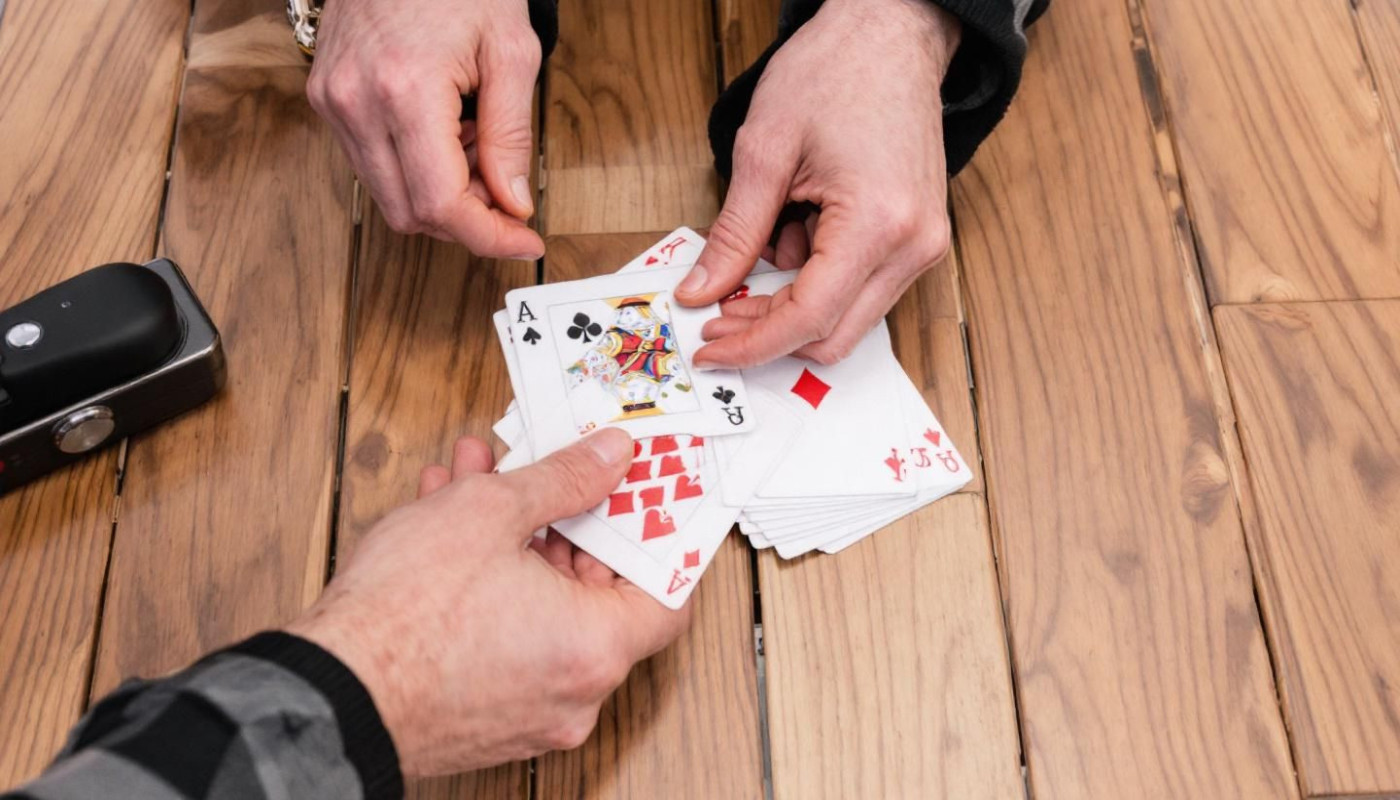Table of contents
Step into the vibrant world of card games with betting elements that are the heart of social gatherings in Brazil. Whether it’s the spirited laughter echoing from a lively living room or the intense focus at a shaded outdoor table, these games are a staple of Brazilian entertainment. Why have these games captivated so many? They blend strategy with the thrill of chance, making for an engaging pastime that appeals to a wide audience. This piece unveils the intricacies of these popular games, illuminating why they have become an indelible part of Brazilian culture. Immerse yourself in the competitive spirit and the camaraderie that these games foster, and you might just find yourself eager to join the next round. From traditional favorites to modern twists, prepare to explore the captivating world of Brazil's most cherished card games with betting elements. Let the allure of skill, luck, and potential rewards entice you to read on and discover the games that have become a beloved tradition in this lively nation.
Truco: The Quintessential Brazilian Card Game
Venture into the vibrant realm of Truco, a captivating and widely cherished card game that reigns supreme at Brazilian gatherings. Esteemed as one of the most popular card games in Brazil, Truco's allure lies in its thrilling blend of strategy, psychological warfare, and social interaction. The game's objective is straightforward: players strive to win tricks to score points for their team. Yet, it's the spirited art of bluffing that truly defines Truco, as players often boast about the strength of their hands to mislead opponents and gain an advantage.
Truco is traditionally played by teams, which adds a layer of camaraderie and collective strategy to the experience, making it one of the sought-after team-based card games in the region. Understanding the hand ranking is imperative for success, as it determines the hierarchy of the cards and influences the ebb and flow of the game. The integration of betting into Truco's gameplay elevates the excitement, as stakes are placed on the outcome of each hand, intertwining Brazilian betting games culture with this classic pastime. Whether you're a seasoned aficionado or a curious newcomer, Truco's combination of skill, deception, and social interaction makes it an essential component of the Brazilian gaming landscape, where the thrill of bluffing and the joy of victory are celebrated with fervor.
Poker: A Global Phenomenon with a Brazilian Twist
The love for Poker transcends borders and oceans, making its way into the vibrant culture of Brazil. Known for their passion and festivity, Brazilians have embraced this card game, infusing it with a distinctive flair. "Poker in Brazil" is not just a passing craze; it has become a staple entertainment, with many variations of the game flourishing across the country. Among these, Texas Hold'em stands tall as the favored choice, yet local players often indulge in other "card game variations" that cater to their diverse tastes.
Alongside the social aspect where friends gather to test their skills and luck, "competitive card gaming" has seen a significant rise. The Brazilian poker community often congregates at grandiose venues and online platforms to participate in "Poker tournaments," with both local and international players vying for substantial prize pools. These events have served to elevate the status of Poker within the nation, attracting a competitive edge that resonates across the globe.
Betting card games" like Poker are not merely about chance; they demand a strategic understanding of "pot odds"—the ratio of the current size of the pot to the cost of a contemplated call—and the calculation of potential winnings. This technical prowess is what sets seasoned players apart and is a testament to the skill-based nature of the game. In Brazil, as in the rest of the world, mastering such intricacies can be the difference between a triumphant victory and a learning experience. The Brazilian adaptation of Poker is a vibrant chapter in the ongoing story of this beloved card game's global legacy.
Pife: Brazil's Answer to Rummy
Delving into the world of traditional Brazilian games, one cannot miss the Pife card game, a close relative to Rummy and a staple of Brazilian entertainment. In Pife, also known as Brazilian Rummy, players aim to form sets of three or four cards of the same rank, or sequences of three or more cards in the same suit, known as melds. The excitement of betting in card games is prevalent in Pife, as players strategically bet and raise stakes, adding a layer of exhilaration to each round. The appeal of Pife to Brazilian audiences lies not only in the familiarity and simplicity of its rules but also in the cultural connection and the thrilling possibility of raising stakes in card games, which resonates with the passionate Brazilian spirit. This blend of strategy and chance, coupled with the social aspect of betting and competition, solidifies Pife's status as a cherished pastime in Brazil.
Amidst the array of card games enjoyed in Brazil, Pife stands out for its unique blend of strategy and luck, as well as the dynamic element of wagering that keeps players on the edge of their seats. his explanation fits perfectly within the context of Pife's gameplay, where a deeper understanding of the game can lead to more successful and rewarding rounds.
Canasta: The Strategy Game with Partners
Among the many card games that captivate Brazilian card game enthusiasts, Canasta stands out as a sophisticated beacon of strategy and collaboration. Originating in the 1940s, this strategy card game has retained its popularity due to its intricate rules and the dynamism of partnership in card games. In Canasta, teams of players work together to outmaneuver their opponents through careful planning and tactical execution. The objective is to score points by melding cards and making canastas, which are sets of seven or more identical cards.
A distinctive feature that separates Canasta from other strategy card games is its use of a stockpile. Players draw from this central pile, adding an element of unpredictability and requiring a flexible betting strategy. Unlike games where betting is a solitary endeavor, in Canasta, partners must constantly adapt their wagering tactics based on the evolving state of play and the combined strength of their hands. This communal approach to betting injects an additional layer of complexity, as partnerships strive to make informed decisions that benefit the collective rather than just the individual. Thus, Canasta card game aficionados appreciate not only the skill involved in the gameplay but also the subtle nuances of a betting strategy that values cooperation and adaptability.
Cacheta: Fast-Paced Fun for Everyone
The Cacheta card game is a beacon of Brazilian card game culture, renowned for its rapid gameplay and straightforward betting dynamics. With each round typically completed in a flash, it caters to the adrenaline needs of those who prefer fast-paced card games. The essence of Cacheta lies in its simplicity; the rules are easy to grasp, ensuring that players of various skill levels can join the table. Betting in Cacheta is seamlessly integrated, with players staking their wagers on their ability to combine cards and strategically utilize the discard pile to their advantage. Its uncomplicated gambling framework, termed simple betting rules, adds to the game's widespread appeal. This Brazilian gem draws people from diverse backgrounds, resonating with an extensive demographic and solidifying its status as a card game for all ages. In the landscape of Brazilian leisure activities, Cacheta distinguishes itself from its counterparts by offering a perfect mix of swift gameplay, elementary strategy, and the thrilling inclusion of stakes.
On the same subject














